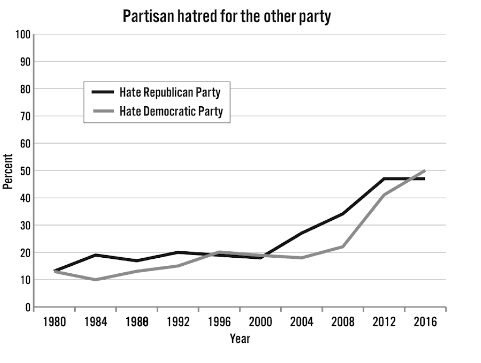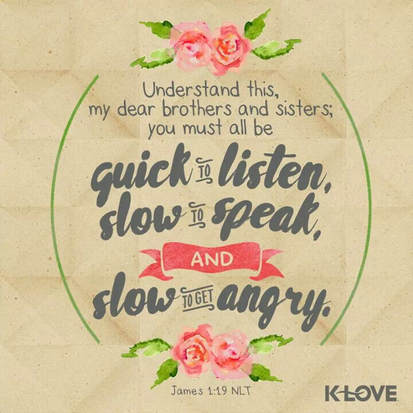|
Practical Steps on How to Be a Christian in a Divisive World There are social forces at work that would like to tear apart the church that I call home. That church is made up of people from all across the political spectrum. They love Jesus and each other. And that feels like a little miracle at a time of outraged polarization. It’s a time of sifting and tribalism, a time of ferocious line drawing. At church we insist that the only lines worthy of drawing are the lines that intersect in the shape of a cross. But there’s pressure and we feel it. There is the pressure to sort ourselves out politically, to spare ourselves the discomfort of a shared space. Too often the only remedy that gets prescribed is civility. Don’t get me wrong: I’m not against civility. In fact civility is always a good approach because it is virtuous and better than incivility. But that’s like saying that in the face of a hurricane it’s good to use an umbrella because an umbrella is designed to protect and it’s better than no umbrella. Alright, but woe to the floodplain dweller who, being armed with an umbrella, neglects the sandbags. Mere politeness will not carry this day. Below are several suggestions for a robust approach to church life in polarizing times. Measure the health of your church by ideological diversity rather than purity. Putting all my cards on the table, I am personally a conservative in the William F. Buckley mold. And, of course, I think I’m right to be or I wouldn’t be. But that set of convictions and principles will not mean anything in heaven. That identity will have no use and will score me no points in heaven. There will be no progressives or libertarians there either. But heaven will be full of people who had thought of themselves as Republicans and Democrats and all manner of other things. The point is that church, being heaven’s porch and foyer, is something that ought to transcend and redeem all these other things. Being proud to have a church that is made up of all conservatives or all progressives is like boasting of having a hospital whose patients are all the right kind of sick. We measure a hospital’s praiseworthiness by how it refuses to turn away and how it insists on healing the patients who come through its doors, no matter their symptoms. Let it be so with the church.  Go with mission, not affinity. At a time when thought leaders are calling for people in their political camp to literally disown family members in the opposite camp, affinity is too weak a glue to hold a church together. Affinity produces real unity, but it’s unity that’s real shallow. A shared mission, on the other hand produces a more resilient unity, one that can survive all manner of ideological differences, so long as it’s a worthy enough mission. That’s why a mission like that of Google (to organize the world’s information and make it universally accessible and useful) is weak enough to produce an ideologically uniform corporate culture, while that of the the United States Armed Forces (to defend the security of our country and sustain American influence abroad) accounts for the fact that the military is one of our last reliably diverse institutions. Any church might have such a compelling mission, if only it wants it. Do not identify with your positions. One of the great shortcomings of our diminished American intellect is the failure to hear an argument against my belief without experiencing it as an attack against my person. When I make the mistake of allowing my beliefs to determine my identity I effectively erase the distinction between the personal and the political, and I eliminate the possibility of repentance, of having my mind changed. Your political positions (right or wrong) should have no bearing on who you are in Jesus, and you should not feel personally threatened when someone challenges your beliefs. You are not the moral sum of the positions you have taken. On a similar note, our body politic has been infected by the poisonous notion that holding the right views is what makes you a good person. It’s led to the curse of what we call “virtue signalling.” And it is completely incompatible with our Christian faith. As Christians we must reject the notion that believing the right things, or even doing the right things, could make anyone a good person. We should despair of ever making the case for our own goodness and focus on the holiness that comes when we accept that Jesus alone is good and that he has given my political opponents the same benefit of his righteousness on which I am so desperately dependent.  Think about Satan When people accept the proposition that their own political positions make them uniquely good people, it is a logical consequence that they decide about their opponents that they, believing all the wrong things, are not so much mistaken as bad. The growth of this dismal notion is illustrated in this graph from “Prius or Pickup?,” by Hetherington and Weiler. Theologian Andrew Wilson has suggested that one of the things that has left room for the growth of this thinking is that, culturally, people don’t take Satan seriously. When you don’t have actual demons to oppose you make demons of your opponents. The church ought to be better on this count. We know that Satan is real and that he prowls about. Believers who see the church as the place from which they wage spiritual warfare are much less likely to wage ideological warfare in the pews.  “Follow this one simple rule!” My dear brothers and sisters, take note of this: Everyone should be quick to listen, slow to speak and slow to become angry, because human anger does not produce the righteousness that God desires. James 1:19-20 Finally, let me say that the goal must be about preserving the conditions for diversity of all sorts: not the diversity itself. When John Wesley presided over the great Methodist Revival in the 1700’s, one of its most compelling features was the way in which it was radically inclusive of poor, working class believers at all levels of the movement. But when the Methodists from the lower end of the socio-economic spectrum took to heart the message of holiness and grew close to their Methodist brethren from different backgrounds a funny thing happened. They grew prosperous. And no one took that as evidence that the Methodist movement had betrayed its inclusive ideals. We should hope that a similar thing will happen: that believers who share in Jesus’ blood and anticipate the same eternity, might end up sharing similar convictions about how to arrange our civic polity here. And we for our part must be content to let the Holy Spirit bring that about, rather than trying to make it happen on our own terms.
0 Comments
Leave a Reply. |
Furnace Brook Wesleyan Church Blog
|

 RSS Feed
RSS Feed